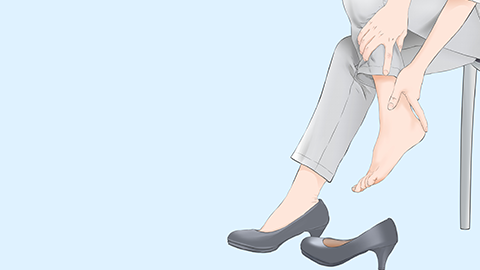What causes migratory pain in the hands and feet?
Under normal circumstances, migratory pain in the hands and feet may be caused by factors such as excessive fatigue, cold exposure, rheumatoid arthritis, gout, or polyneuritis. It is recommended to seek medical attention promptly, identify the underlying cause, and receive symptomatic treatment under a doctor's guidance. Specific analyses are as follows:

1. Excessive fatigue: Long-term physical labor or frequent fine hand and foot movements can cause sustained muscle tension and accumulation of metabolic waste, leading to migratory soreness. Daily activities involving heavy use of hands and feet should be reduced, prolonged work avoided, and hands and feet soaked in warm water for 15–20 minutes each night. Gentle massage can also help improve blood circulation.
2. Cold exposure: Prolonged exposure of hands and feet to low temperatures causes blood vessel constriction and impaired circulation, resulting in migratory stabbing or throbbing pain. Keeping hands and feet warm is essential—wear gloves and thick socks outdoors, avoid contact with cold water, and apply heat packs to affected areas to relieve discomfort.
3. Rheumatoid arthritis: An autoimmune disease that affects the synovial membranes of joints, causing migratory joint pain in the hands and feet, accompanied by swelling and stiffness. Patients may follow medical advice to take medications such as methotrexate tablets, leflunomide tablets, or sulfasalazine enteric-coated tablets to control inflammation and reduce pain.
4. Gout: Caused by abnormal uric acid metabolism, leading to deposition of uric acid crystals in hand and foot joints, triggering sudden, severe migratory pain along with redness and swelling. Patients may follow medical advice to take allopurinol tablets, febuxostat tablets, or benzbromarone tablets to lower uric acid levels and relieve symptoms. Anti-inflammatory and analgesic drugs may also be used during acute flare-ups.
5. Polyneuritis: Often triggered by infections or nutritional deficiencies, this condition damages peripheral nerves in the hands and feet, causing migratory tingling, pain, and numbness. Patients may follow medical advice to take nerve-nourishing medications such as vitamin B1 tablets, mecobalamin tablets, or vitamin B12 injections. If nerve compression is the cause, surgical nerve decompression may be performed to relieve pressure and restore nerve function.
In daily life, maintain a regular sleep schedule, avoid staying up late, eat a balanced diet, and appropriately consume foods rich in vitamins and protein. Engage in moderate stretching exercises for the hand and foot joints to enhance local circulation and reduce discomfort.




